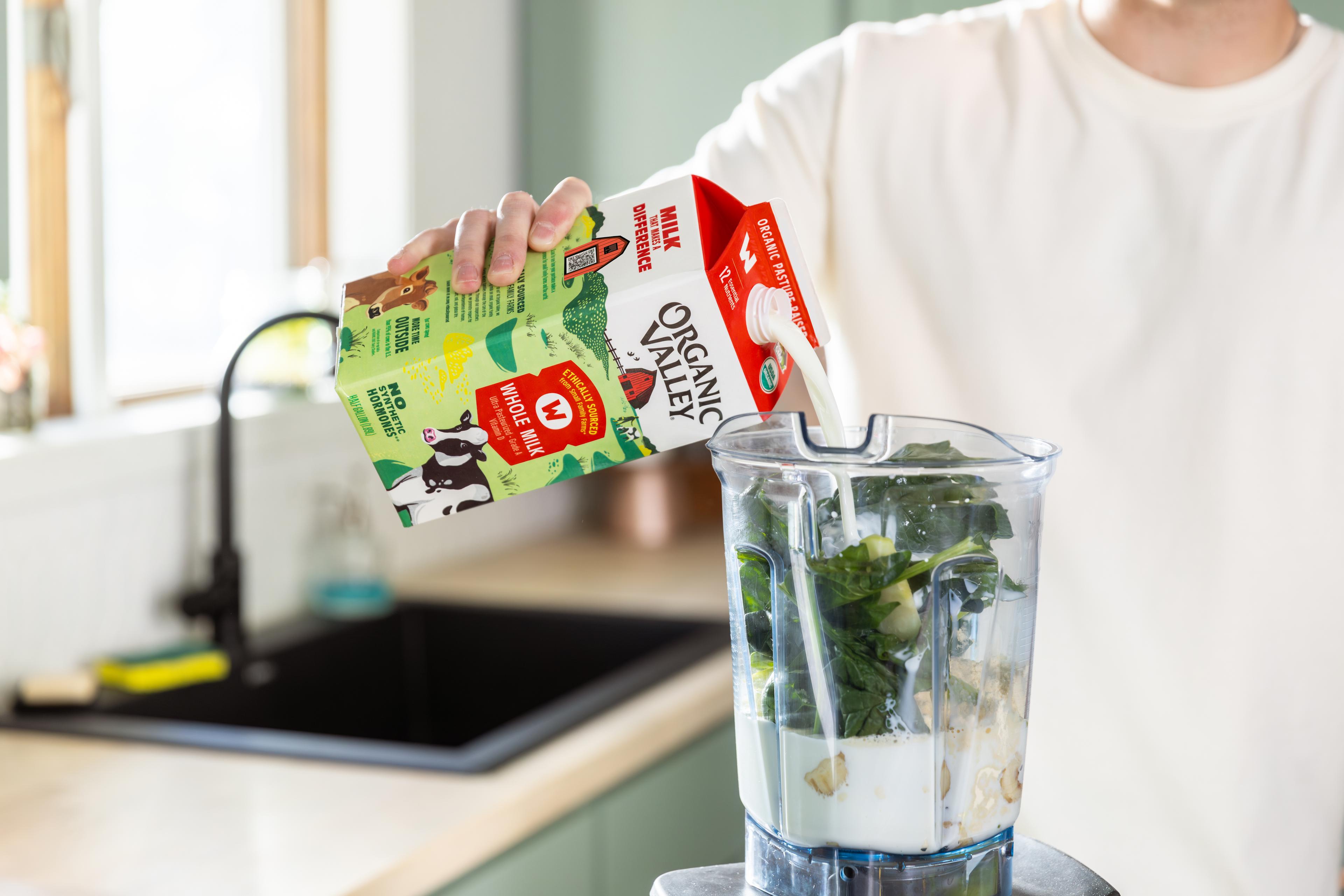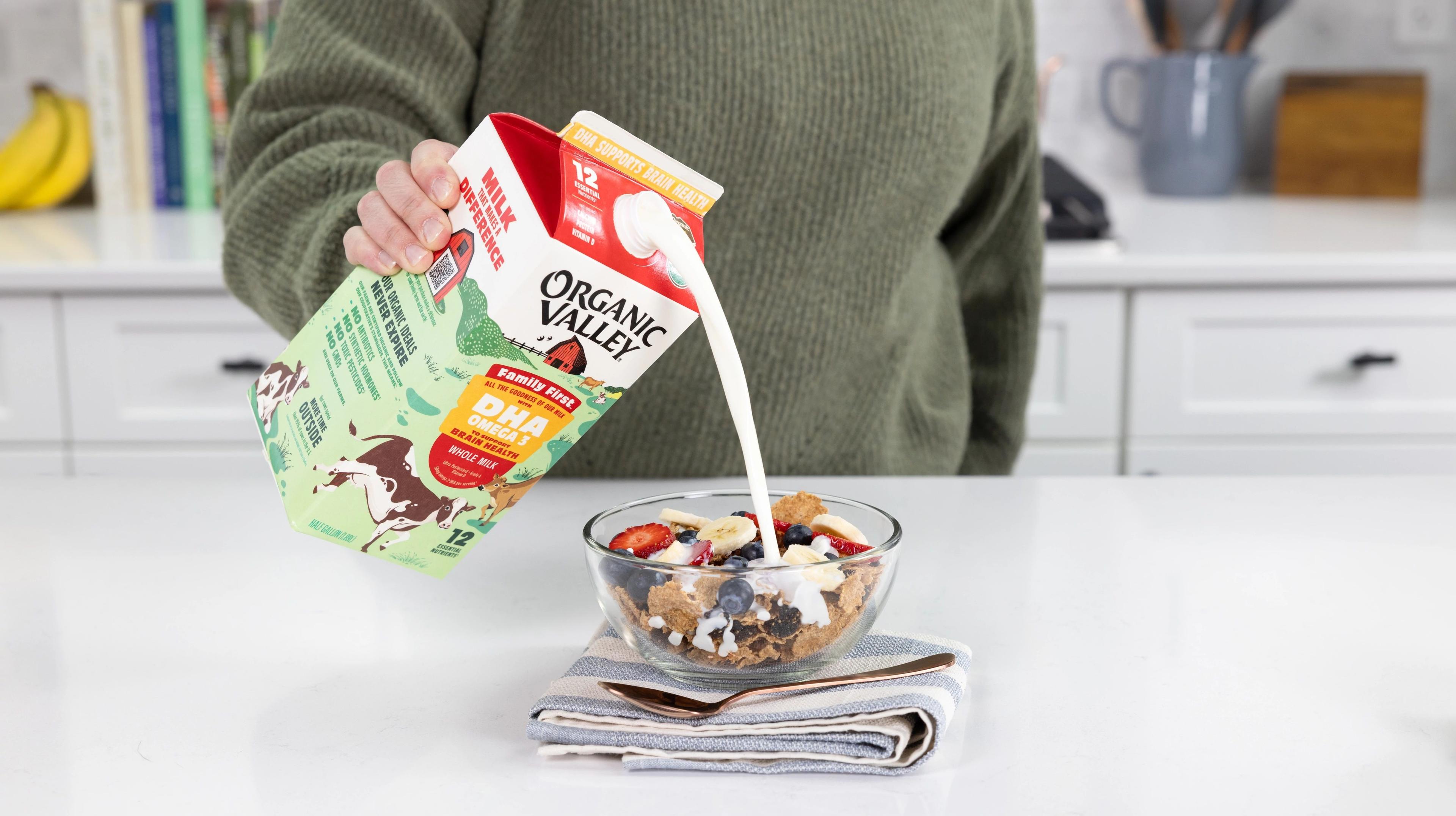
Food
Is Milk a Protein or Carb?
At the heart of every delicious meal and snack, carbs and proteins play the lead roles in our nutritional theater. Together, they create a dynamic duo essential for keeping your body running smoothly.
Protein is crucial for the repair and growth of tissues in the body, playing a vital role in muscle recovery and development. It is also a foundational building block for enzymes and hormones, supporting essential physiological processes. Carbs are crucial for providing the body with energy, serving as the primary fuel source for our brain, kidneys, heart muscles and central nervous system.
Many of us know of quintessential sources of protein and carbs. Eating a 20-ounce porterhouse steak or a handful of nuts will fuel your body with protein. Downing a bowl of pasta or guzzling a can of regular soda will give your body a boost of carbs.
But what do you get when you drink dairy milk? Is milk a carb? Or is milk a protein
This article will help clear that confusion and provide more nutrition nuggets that may help you live your healthiest life.
So, Is Dairy Milk a Carb or a Protein?
Milk is often classified as a unique food item because it contains a balanced mix of macronutrients: carbohydrates, proteins and fats. Specifically, the carbohydrate content in milk comes from lactose, a naturally occurring sugar. One standard 8-ounce glass of milk is considered one carbohydrate serving, with around 12 grams of carbs per serving.
On the protein front, milk is a natural source of high-quality protein, containing all nine essential amino acids required by the human body for growth and repair. The protein content in milk contributes significantly to its nutritional value, making it a staple in many diets worldwide. Along with 12 grams of carbs, an 8-ounce glass of standard dairy milk typically provides at least 8 grams of protein.
Protein in milk exists in two main forms: casein and whey, which are both valued for their nutritional quality and digestibility. The sugar in milk is called lactose, which is the carbohydrate source of this beverage.
Proteins and carbohydrates in milk benefit the body in different ways. Proteins, serving as the building blocks of muscles, aid in repair and growth, making milk an excellent post-workout recovery drink. Carbohydrates, on the other hand, replenish depleted energy stores, ensuring the body remains energized — again, a positive aspect for post-exercise recovery.
Simply put, dairy is a protein and a carb!
Milk Nutrients' Impact on Blood Sugars
Dairy products, being a natural source of both protein and carbohydrates regardless of whether you are enjoying skim, whole, or any other milk, have a nuanced impact on blood sugar levels. The protein found in dairy can aid in the gradual absorption of carbohydrates, leading to a more moderate increase in blood sugar compared to consuming carbohydrates alone. However, lactose — a type of sugar present in dairy — can cause blood sugar levels to rise, depending on the individual.
Along with the carbs and protein that can impact blood sugars, the fat found in dairy milk (with the exception of skim milk which is fat-free), can also help stabilize blood sugars by slowing carbohydrate absorption.
Lactose-free milk contains milk casein and whey proteins. Learn more about lactose and lactose-free milk here.
How to Choose the Right Milk for a Protein-Carb Combo
Not all milks are created equal. While many drinks are marketed as “milks,” if you aren’t choosing dairy milk, you cannot be assured that your choice provides ample quantities of protein or carbohydrates. While some varieties add protein to help them be nutritionally comparable to dairy milks, others are low-protein or protein-free (like rice milk or unfortified almond milk).
One study found that while 72% of plant-based milk mostly matched dairy's percentages of calcium and vitamin D, very few plant-based options came close to dairy's protein levels.
Choosing dairy milk will ensure your body is receiving high-quality protein and carbohydrates with every sip.

Within the dairy milk choices, there are options that may be better choices for your health. Organic Valley dairy milks never use toxic chemicals or GMOs during processing. The newest addition to its dairy milk family — Family First™ — is an organic milk option that provides a boost of DHA omega-3 fatty acids to help support brain health.
All of the Organic Valley dairy milks are ethically sourced and organic, resulting in a great-tasting dairy drink that is packed with carbs and protein along with a slew of other milk components like calcium and vitamin D.
Carbohydrate Comparison With Other Beverages
When comparing milk's carbohydrate content with that of other beverages, it becomes evident that milk offers a unique blend of nutrients. For instance, fruit juices may have lots of vitamins but also more carbohydrates than milk and no protein or fat.
Sodas, on the other hand, are typically high in added sugars and lack nutritional value. Alternative milk options such as almond milk or soy milk may have lower carbohydrate counts, especially the unsweetened varieties, but they also offer different nutritional profiles.
Soy milk comes closer to cow's milk in terms of protein content. Almond milk is typically lower in calories and proteins but may be fortified with vitamins and minerals. Many plant-based milk alternatives have significantly less protein than dairy milk. Juice and soda are void of protein.
The Bottom Line on Carbs and Protein
If you have ever wondered if milk is a carbohydrate or a protein, you can now feel confident knowing that it is a source of both. The casein and whey found in dairy milk make it a protein source, and the natural sugars in milk give this drink carbohydrates.
Choosing dairy milk will ensure you receive carbohydrates and protein, as well as other essential nutrients like calcium. Many plant-based dairy alternatives do not always offer comparable nutrients. To ensure your milk is free from toxic chemicals and GMOs, Organic Valley has a family of dairy products that will meet your needs deliciously.
Lauren Manaker is an award-winning registered dietitian and book author. After spending over 15 years working in health care and industry, she started a consulting business focusing on reproductive, pediatric and women’s health. Lauren resides in Charleston, South Carolina, with her husband and young daughter. In her spare time, she can be found enjoying an outdoor oyster roast in the cooler months, doing anything on the water in the warmer months, and practicing yoga year-round.
Related Articles
- Tags:
- organic nutrition


















